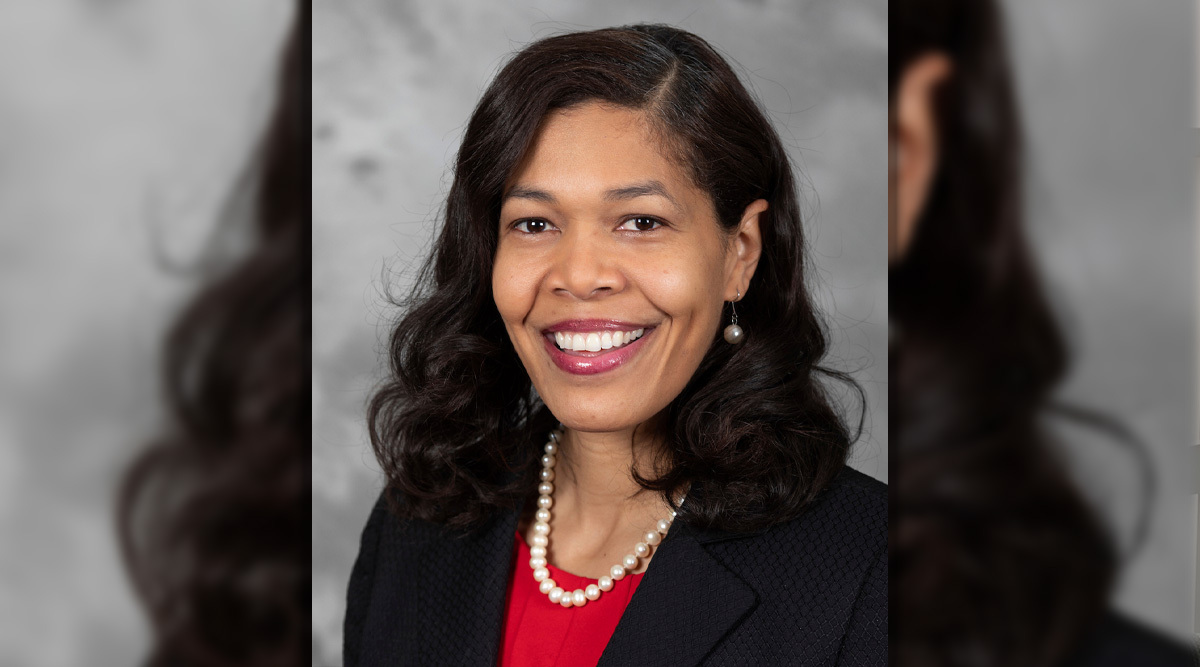It takes a team effort to serve a community in need. In her role as Vice President of Community Health Operations, Nichole Wilson has a plan that reaches well beyond the hospital walls.
By IU Health Senior Journalist, TJ Banes, tfender1@iuealth.org
There are certain words that Nichole Wilson uses to describe herself: “Passionate,” and “Driven.” She attributes those characteristics in part to her upbringing.
Her grandmother was a nurse’s aide at IU Health Methodist Hospital for more than 30 years; her aunt is a nurse; and both her mother and sister work in health insurance.
“I was naturally drawn to the health world,” said Wilson, who volunteered at a young age at a physician’s practice where her aunt worked. “Seeing black women work in health care settings was a part of the fabric of my life growing up.” In her leadership role at IU Health she sees an opportunity to honor her family’s legacy and give back to her community.
Wilson grew up in Indianapolis and graduated from Pike High School. She earned a bachelor’s degree in sports medicine from DePauw University, master’s and doctoral degrees in physical therapy from the University of Indianapolis and a master’s in business administration from Purdue University.
She joined IU Health in November of 2021. In just over a year, Wilson has turned her attention to four key areas of health care: Behavioral health, infant and maternal health, hypertension, and smoking cessation. Her team also works to address social determinants of health. She is committed to health equity and says she won’t stop until she sees change. “I’ll work day and night and leave no stone unturned to see that needle move,” said Wilson.

Here, Wilson shares some of those initiatives and IU Health’s goals for a broader community health strategy.
Q: Behavioral health is a focus for all IU Health sites. What collaborative efforts are in the works to strengthen access to mental health resources?
A: We are currently in the process of building a system-wide strategic plan for behavioral health. One effort that we will be championing this year is to automate the depression screenings that patients get when they come in for a primary care appointment. The screening will come directly to the patient before their visit. If they screen positive, our integrated behavioral health team will reach out proactively to see if the patient needs specific services and inform their primary physician.
Q: When we talk about social detriments to healthcare, what are the greatest needs for the immediate future?
A: We know 80 percent of a patient’s health outcome is due to social determinants of health. That means the need is great for such things as access to food, transportation, and economic stability. We do need a system-wide strategy to screen our most vulnerable patients for social needs so that we can get them the help that they need. In 2023, we will do just that. We also have a team of social workers that will proactively connect with those patients that screen positively to connect them to much needed resources.
Q: How can IU Health better meet the needs of mothers and infants?
A: IU Health is part of a collaborative initiative called “We Care” where community health workers assist at-risk mothers navigate pregnancy. The goal is to reduce Indiana’s infant mortality rate. As the program expands, community health workers offer specialized services such as lactation education, referrals to doula-assisted births, diapers and formula to new mothers. With community health focuses on hypertension and smoking cessation programs, those services can also be introduced to new mothers.
Q: How do those services expand to others in the community?
A: We recently partnered with the Health Equity team to launch a program called, “iHeart.” This program deploys Community Health Workers into neighborhoods in collaboration with community partners to screen for and address social determinants of health and to offer blood pressure screenings and education. We have identified zip codes where hypertension and social needs are most prominent among black and brown patients. Through community health workers and strong partnerships, we will be able to bring health services to the community.
Q: What do you see as the greatest challenges when we talk about health inequities?
A: Trust. IU Health must continue our efforts to show up in the community authentically. It’s about being there when the community needs us, not just when there’s a photo op. It’s about coming along side community partners to support their initiatives by providing health touches and health care directly to the community. Whether it’s blood pressure screenings, or point-of care testing, and/or – identifying and supporting patients that have mental health needs.
Personal: Wilson has been married to Corey Wilson since 2007. They have a 6-year-old daughter, Nahla.
